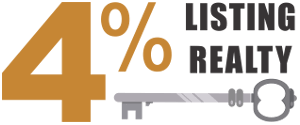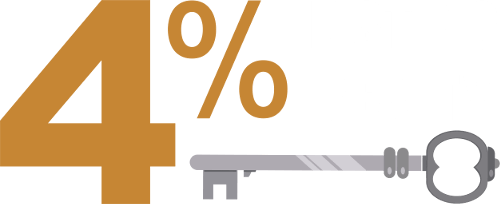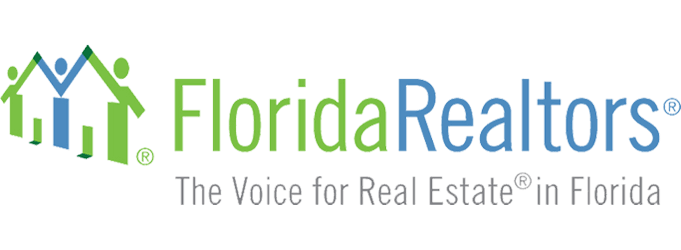South Florida Real Estate Blog
Helpful Tips, Advice & Articles for Buyers or Sellers
What Is Included In the Cost of Buying a House?
Did you know that more than 6.4 million U.S. homes were sold in 2020? With sales like that, the home-buying market is competitive, and homes priced to sell are at an advantage.
But as a buyer, there is more to the cost of buying a house than just the listed price.
Interested in learning more about home buying expenses? Then you’ve come to the right place. Read on to learn more about the total cost of buying a house.
What Is In the Cost of Buying a House?
When you think about the cost of buying a home, the main number that comes to mind is the listing price. While this encompasses most of the cost, you should be aware of the other fees that can increase the price. Some of the major fees include:
Inspection Fees
A pre-purchase inspection assesses the condition of the home to find any major issues prior to closing. While this isn’t a requirement, it is highly recommended. The qualified inspector should give the house a thorough structural review, which should include looking at the following:
- Water damage
- Mold
- Cracking in walls
- Roof damage
- Sagging in the ceiling
- Plumbing
- Electrical
- HVAC systems
You can expect to pay between $300 and $1000 for a home inspection. The price varies by location and the size of the house.
However, the cost to replace items like an old roof or broken plumbing is significantly more. This is a worthy investment.
Appraisal Fee
Those seeking a home loan will likely need an appraisal of the property that the buyer must cover. The appraiser reviews both the property and recent nearby sales to determine the value of the loan. If the appraisal is for less than the listed price, the buyer may withdraw their offer or renegotiate with the seller.
Similar to pre-purchase inspections, the cost of an appraisal depends on several factors, including who is conducting it and the size of the house. Typically, the appraisal will cost several hundred dollars. Different states have varying regulations that can impact the cost as well.
Title Search
A title search ensures that the current owner is qualified to sell the house. It determines the property’s legal owner and if there are any liens or claims, which could affect your ability to purchase it. A title search can also uncover smaller items that you could be responsible for post-purchase, including:
- Unpaid homeowners association fees
- Back property taxes
- Bills for home improvements and repairs
Typically, this fee isn’t more than $100. Many lenders require a title search as a prerequisite for a loan.
Homeowners Insurance
A mortgage loan provider will require homeowners insurance, which covers damage to the house and your belongings. There are some disasters that aren’t covered by homeowners insurance that you may consider getting a separate policy for, such as floods and earthquakes.
Unlike these other fees, the cost of homeowners insurance is dependent on multiple parameters. Some of these parameters include:
- Location
- Home value
- Deductible
- Claims history
- Coverage
- Credit score
Due to all these factors, the cost can vary substantially. The average premium in the U.S. for 2019 was $1,015, but a policy on a more expensive home can easily double that. This is a cost of buying a house that is often overlooked, and it’s annual forever.
Loan Origination Fee
The loan origination fee is associated with the mortgage loan and is one of the largest fees you will pay. Lenders typically charge up to one percent of the loan amount for this fee, so the higher your mortgage loan is, the higher the origination fee will be.
You may be able to negotiate for a lower fee, but that may result in higher interest rates to offset the loss to the lender.
Attorney’s Fee
As buying a home involves complex legal documentation, it is advisable to get an attorney to review the documents. In some states, this is required.
What Other Fees Are There For Specific Loans?
Depending on the type of loan you go with, there are additional fees you may need to pay. Some of these include:
Private Mortgage Insurance (PMI)
If you aren’t able to make the 20% down payment, PMI could be a requirement. This would be a monthly reoccurring fee, and your first month’s payment is due at closing.
VA Funding Fee
If you go with a VA home loan, this fee is accessed to help fund this program. It is a small percentage of the loan amount, and some borrowers may be exempt.
FHA Up-Front Mortgage Insurance Premium
For loan borrowers going with an FHA loan, you will have the added cost of this premium. This cost is 1.75% of the loan amount, and can either be paid at closing or added to the balance.
What Other Small Fees Are There?
While these fees are small compared to the origination fee and homeowners insurance premium, you should still consider them. Some of them include:
Pest Inspection Fee
A requirement in some states, this fee pays to have an inspector check for termite damage. This could be covered as part of the overall home inspection process.
Survey Fee
A surveyor may need to verify all property lines. This is a requirement in some states as part of the cost of buying a house.
Transfer Taxes
A tax is accessed on the home’s title when it is passed from the seller to the buyer. The rate varies at the state, county, and city levels, but is usually just a fraction of a percentage point.
Are You Ready To Buy A Home?
Now that you have a better understanding of what goes into the total cost of buying a house, what are you waiting for? Understanding all the fees can help with negotiating a fairer price or what type of lender you want to seek out.
Contact us to get started with the home buying process.
Latest Property & Homes for Sale
View these recently listed Treasure Coast & Palm Beach area properties for sale, or start a customized search.








0 Comments